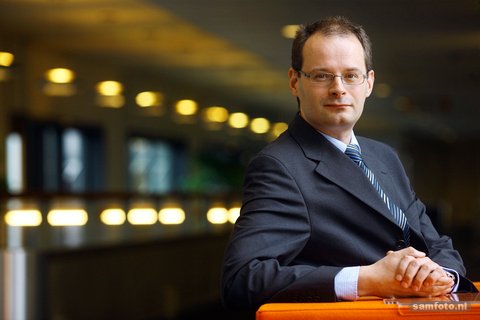Privacy is a hot-button issue in our internet age, but as a recent conference at TU Delft revealed, as yet nobody really knows the real definition of privacy.
Privacy is often-debated subject, especially in relation to advancing technologies, like social networking sites, cookies and CCTV cameras. Despite the need for clear legislation, though, no clear definition of privacy exists. Martijn Blaauw, assistant director of the 3TU.Centre for Ethics and Technology, and research fellow in the Technology, Policy and Management (TPM) faculty’s philosophy section, suggests a completely new field within philosophy to find a proper definition of privacy. He was the main organiser and chair of a three-day conference, titled ‘Epistemological Problems of Privacy and Secrecy’, held last weekend at TPM.
Blaauw’s specialism is epistemology (the theory of knowledge), and this was the first-ever conference on this topic. “Jurists, sociologists, anthropologists and philosophers have all tried to formulate a good definition of privacy,” he explains. “It’s strange that nobody ever thought about privacy from an epistemological point of view. The relation between privacy and knowledge is obvious, since privacy is about knowing personal data.”
Blaauw briefly offers a short introduction to epistemology, before discussing the conference’s key topics: “There are several branches in philosophy, which all try to answer different questions: for example, ‘what is love’ or ‘what is wisdom’. Epistemology deals with the question: ‘what is knowledge’? When do you know something?
“Epistemologists have largely concluded that three conditions must be fulfilled for a person to know something. A person knows that a certain proposition is true if and only if, one, that proposition is true; two, the person believes the proposition is true; and three, the person is justified in believing the proposition true. So, for example, if a person predicts that he’ll win the lottery and he does, then the person still didn’t know he was going to win, because he wasn’t justified to believe that. It was just wishful thinking. Thus, summarized, knowledge is defined as justified true belief.”
How can epistemology help arrive at a good definition of privacy? Before answering, Blaauw adds some nuance. “On one hand, there’s informational privacy, and on the other, the right of self-determination, or tort,” he explains. “Informational privacy considers obtaining various personal data about a person, like for example hair colour, date of birth, sexual orientation, etc. Privacy of self-determination is about control over your own life, including your body. If the government decides to forbid abortion, that’s a violation of privacy of self-determination. During this conference, we were interested in informational privacy.”
An example of informational privacy is electronic medical records, which can benefit patients and doctors. However, if the wrong person gains access to medical files, a patient’s informational privacy has been violated. To formulate proper regulations for medical records, a proper definition of privacy is required.
Potential harm
What exactly then constitutes personal data? Blaauw: “The term personal data can refer to any piece of information about a person. However, when a person’s personal data are known by someone else, it doesn’t necessarily mean privacy has been violated. Most people don’t care if I know their hair colour; however, your hair colour could be important private information if the police are searching for you. Any personal information is therefore potentially privacy sensitive, depending on the context. The question then is: in what context is personal information privacy sensitive?”
Blaauw says the ultimate purpose of philosophical discussions of privacy is to advise jurists and engineers on the best way to legally protect informational privacy.
Jeroen van den Hoven, professor of moral philosophy at TU Delft, has a suggestion for solving technical privacy issues. “The solution isn’t to make privacy-sensitive information either public to everyone, or to nobody, but to control the accessibility to personal information for each person,” he explains. “Technology’s already capable of controlling this, so it’s therefore important that conclusions from this conference are discussed with engineers for feedback.”
Also speaking at the conference was Daniel Domscheit-Berg, who left Wikileaks in 2010 to start his own whistle-blowing website, OpenLeaks. The fuss around Wikileaks shows the importance of discussing epistemological problems of secrecy, another conference topic. “Do citizens have a duty to reveal governmental information when they find it?” Blaauw asks. “My first reaction is that complete transparency isn’t always wise or sensible.”
In late 2012, Blaauw will organize a second conference on epistemological problems of privacy and secrecy, inviting more than just philosophers to attend. “I’d like philosophers, jurists and engineers to discuss the subject together,” Blaauw concludes. “Since last weekend’s conference was the first on the topic, more questions were raised than answers given, but the search for a good definition of privacy has started.”



Comments are closed.